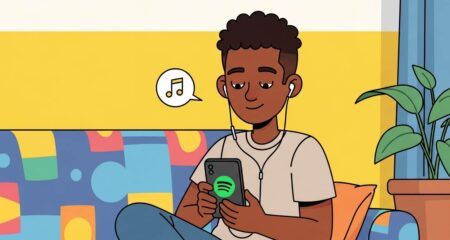 Songstress Taylor Swift, 25, and U2 frontman Bono, 54, have very different views of the streaming music phenomenon that is upending the music industry’s business model.
Songstress Taylor Swift, 25, and U2 frontman Bono, 54, have very different views of the streaming music phenomenon that is upending the music industry’s business model.
Late last year, Swift pulled her songs off the world’s leading online music streaming service, Spotify, claiming the Swedish company does not pay artists enough in royalties. “I’m not willing to contribute my life’s work to an experiment that I don’t feel fairly compensates the writers, producers, artists and creators of this music,” Swift said about her decision.
Streaming music — where consumers pay a small monthly fee, typically less than US$10, for unlimited access to millions of songs — has divided the industry right down the middle. Some believe it will save the industry from piracy; others say the model means less income for artists.
Spotify CEO Daniel Ek was quick to respond to Swift, writing in a blog post that the company has paid more than $2bn to songwriters and recording artists since 2008. “That’s $2bn worth of listening that would have happened with zero or little compensation to artists and songwriters through piracy or practically equivalent services if there was no Spotify.”
Bono, who, it must be noted, made his fortune on the back of the sale of music on physical formats — tapes, LPs and CDs — has taken the opposite view of Swift.
In a New Year’s Day blog post on U2’s website, Bono wrote that “for-fee services like Spotify are slowly turning people who are used to getting their music for free into paying $10/month for a subscription model”.
“These payments don’t add up to replacement for income from physical or digital sales at the moment, but I think they can if everyone — record companies, artists and digital services — sits down to figure out a fairer way of doing business.”
No one quite knows where the model is headed. But for consumers with access to affordable broadband, streaming is very compelling.
Take Rdio and Simfy, two of the international streaming services that operate in South Africa. They charge just R60/month — or less than half the price of a new CD — for unlimited access to more than 30m songs from the desktop or through their smartphone apps. For desktop access only, the price is just R25/month.
At those prices, there’s little reason for consumers to download music illegally.
Plus there’s the opportunity for discovery. Rdio, for instance, allows its users to keep tabs on what their friends are listening to, or to find new music by clicking through to similar artists to the ones they like.
By the same token, these services make it much easier for musicians to get noticed. And while they arguably won’t make much money from streaming, it could help kick-start their careers and get them playing to bigger audiences.
Indeed, some proponents of streaming believe it empowers musicians and their fans to connect like never before, in the process making the big record labels less relevant.

For now, revenues from streaming are still small next to physical music sales. But as more people get connected to broadband, and as they realise the value streaming offers, it could do to CDs and MP3 downloads what CDs did to vinyl and tape.
Critics of streaming, like Swift, fret that offering consumers an all-you-can-eat music buffet for a tiny monthly fee will hit artists hard. But to fight piracy, most may have little choice but to sign on. Indeed, streaming is one of the few areas where the music industry is showing strong growth.
And, after all, shouldn’t musicians make most of their money by touring? The idea of selling recorded music is a fairly new concept in the human story. Is it one that must necessarily prevail?
Why not give the music away (or sell it at very low cost using the streaming model) in an effort to get more people through the turnstiles at live performances?
As one wag on Twitter put it: “People have been listening to bards in taverns for centuries. That format may prove very resilient.”
- Duncan McLeod is editor of TechCentral. Find him on Twitter
- This column was first published in the Sunday Times




